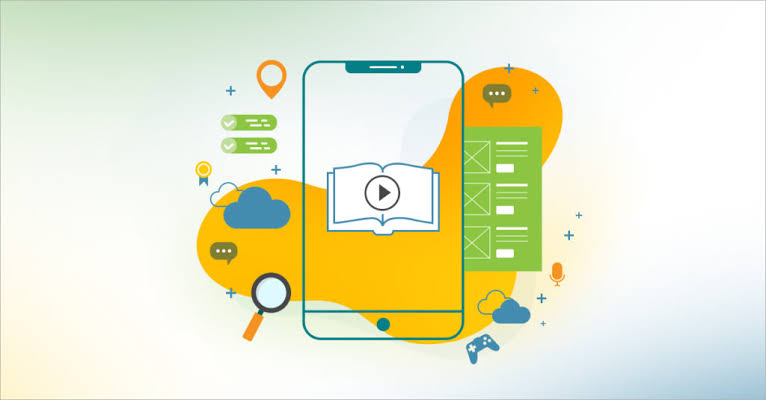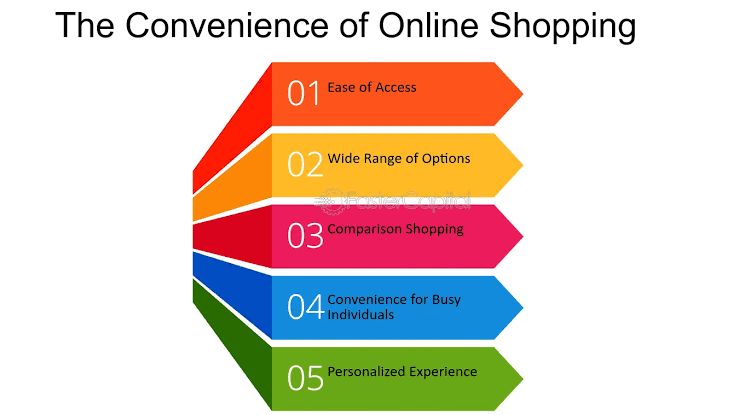
From Classroom to Career: Apps That Help Students Build Skills for the Future
Skill-building apps help students move beyond textbooks into real-world readiness. From learning languages, coding, and financial literacy to mastering creativity, communication, and mental wellness, these tools create a strong foundation for professional success. With platforms offering productivity management, online certifications, and networking opportunities, students gain an edge in today’s fast-changing job market.
✨ Raghav Jain

Introduction
Education is no longer limited to classrooms and textbooks. In today’s digital era, students have access to powerful tools that can prepare them for real-world careers. Whether it’s coding, communication, creativity, or critical thinking, skill-building has shifted to apps that make learning interactive, practical, and accessible anywhere.
While formal education provides the foundation, these apps bridge the gap between academic knowledge and professional skills. By combining classroom learning with digital tools, students can gain future-ready skills like problem-solving, leadership, time management, and technical expertise—all from their smartphones.
In this article, we’ll explore why skill-building apps are essential, the best categories of apps for future careers, their benefits, and practical routines for using them effectively. The journey from the classroom to a successful career is no longer limited to textbooks, lectures, and traditional methods of learning. In today’s fast-paced digital era, students have access to countless tools that help them acquire the skills they need to thrive in their professional lives. Mobile applications, in particular, have become powerful companions that bridge the gap between academic learning and career readiness. With industries evolving rapidly and employers seeking candidates with practical, adaptable, and future-focused abilities, apps are now playing a critical role in shaping the workforce of tomorrow.
One of the biggest advantages of these apps is accessibility. Students no longer need to depend entirely on expensive courses, limited classroom resources, or rigid curriculums. With a smartphone in hand, they can explore skill-based learning platforms, practice real-world tasks, and enhance their employability at their own pace. This democratization of education ensures that even those who may not have access to elite institutions can still equip themselves with marketable skills and compete on a global level.
Apps that focus on communication and language development, for instance, are transforming students into confident speakers and writers. Proficiency in languages—especially English—continues to be a decisive factor in employability. With apps offering interactive exercises, pronunciation guidance, and AI-driven feedback, learners are now able to polish their communication skills in ways that directly align with workplace demands. This not only boosts academic performance but also makes students more capable of networking, presenting, and collaborating in their careers.
Beyond language, apps designed for technical skill development are proving to be game changers. Coding, data analytics, artificial intelligence, and cybersecurity are among the most sought-after fields today. While traditional curriculums are often slow to adapt to these changes, apps fill the gap by offering practical coding challenges, real-time projects, and interactive tutorials. Students who engage with such tools develop both problem-solving skills and technical expertise, two qualities that employers highly value in an increasingly tech-driven job market.
Equally important are apps that nurture creativity and design thinking. Careers in digital marketing, graphic design, and content creation require a blend of technical ability and creative flair. With tools that allow students to design, edit, and publish digital content, they are able to build portfolios even before entering the workforce. This early exposure not only gives them practical skills but also instills the confidence to innovate, experiment, and think beyond traditional boundaries.
Soft skills, often underestimated in formal education, are also gaining attention through mobile platforms. Leadership, teamwork, emotional intelligence, and adaptability are traits employers look for when hiring future leaders. Apps offering interactive case studies, role-playing exercises, and personality assessments encourage students to reflect on their behavior and improve interpersonal effectiveness. These skills often determine career success, as technical knowledge alone is rarely enough to sustain long-term growth in professional environments.
Another crucial factor in career readiness is financial literacy, an area many students overlook during their academic years. Apps focusing on budgeting, investing, and money management prepare students for the real world by teaching them how to make informed financial decisions. This not only empowers them personally but also aligns with the expectations of companies seeking financially responsible employees, particularly in business and managerial roles.
Project management and organizational skills are equally vital, especially as more companies embrace remote work and digital collaboration. Applications that teach time management, task prioritization, and workflow optimization help students prepare for the demands of a professional environment. With features like virtual boards, reminders, and progress tracking, learners cultivate habits that make them efficient and dependable employees. These small yet impactful skills often distinguish high performers from average ones in the workplace.
It is also worth noting the role of apps in fostering global exposure and cultural awareness. With globalization connecting industries and economies, cross-cultural competence has become essential. Students using apps to connect with international peers, collaborate on global projects, or learn about different cultures develop the kind of perspective that companies with diverse workforces value deeply. Such experiences prepare them to contribute in multinational environments and adapt to varied workplace cultures.
While academic qualifications will always remain important, what truly determines career readiness today is the ability to learn, unlearn, and relearn. Apps support this continuous learning journey by offering personalized pathways, gamified modules, and progress analytics. Students no longer see education as something that ends with graduation; instead, they embrace it as a lifelong process. This mindset, cultivated through digital tools, ensures that they remain adaptable and competitive in industries where change is constant.
Employers increasingly seek candidates who can demonstrate initiative, problem-solving, and adaptability. By integrating learning apps into their daily routines, students showcase not only their technical abilities but also their willingness to keep evolving. This habit reflects positively during interviews, internships, and job placements, as recruiters recognize the value of self-motivated learners who invest in their own growth.
Moreover, these apps allow students to create digital footprints that serve as evidence of their skills. From coding repositories and digital art portfolios to certificates earned through online modules, students can present tangible proof of their competencies. This adds credibility to their resumes and LinkedIn profiles, setting them apart from peers who rely solely on academic degrees.
The transition from classroom to career has never been easy, but technology is making it smoother, more accessible, and more practical. Students who leverage apps wisely can develop a balanced mix of hard skills, soft skills, and professional awareness. By combining academic knowledge with real-world expertise, they prepare themselves for industries that demand agility and innovation. In essence, these digital tools are not just supplements to traditional education—they are gateways to opportunity, empowerment, and success.
As the future unfolds, the role of apps in education and career readiness will only expand. Students who embrace them early will not only gain an edge in their professional lives but also build the confidence to face challenges head-on. The classroom may serve as the foundation, but with the right apps, the journey from learning to earning becomes a dynamic and fulfilling experience that empowers students to reach their true potential.
Why Future Skills Matter
The modern job market values skills over grades. Employers look for candidates who can adapt, innovate, and solve problems. Future skills include:
- Digital Literacy: Comfort with technology, software, and online collaboration
- Communication: Writing, speaking, and presenting with confidence
- Problem-Solving & Critical Thinking: Tackling challenges creatively
- Teamwork & Leadership: Collaborating across cultures and teams
- Self-Management: Time, productivity, and emotional intelligence
- Specialized Skills: Coding, design, analytics, marketing
Apps give students a chance to practice, refine, and apply these skills long before they step into the workforce.
Categories of Apps That Build Future Skills
1. Learning & Knowledge Apps
These apps expand academic concepts into career-relevant knowledge.
- Examples: Khan Academy, Coursera, edX
- Skills Gained: Subject mastery, problem-solving, global exposure
2. Coding & Tech Apps
Technology is the backbone of future jobs.
- Examples: SoloLearn, Mimo, Grasshopper
- Skills Gained: Programming, logic building, app development basics
3. Creativity & Design Apps
Creativity is now a core career skill across industries.
- Examples: Canva, Procreate, Adobe Express
- Skills Gained: Graphic design, digital content creation, innovation
4. Communication & Language Apps
Strong communication unlocks career opportunities worldwide.
- Examples: Duolingo, Grammarly, Speeko
- Skills Gained: Writing, language fluency, presentation skills
5. Productivity & Organization Apps
Students must learn to manage tasks, time, and priorities.
- Examples: Notion, Trello, Google Keep
- Skills Gained: Time management, goal-setting, teamwork
6. Financial Literacy Apps
Money management is a real-life skill often missing from classrooms.
- Examples: Step, Greenlight, Money Manager
- Skills Gained: Budgeting, saving, financial planning
7. Career Guidance & Networking Apps
These apps connect students with real-world mentors and opportunities.
- Examples: LinkedIn, Internshala, Handshake
- Skills Gained: Networking, job search, professional branding
Benefits of Using Skill-Building Apps
- Personalized Learning: Apps adapt to your pace and level.
- Practical Exposure: You learn real-world applications of theory.
- Global Access: Connect with international mentors and peers.
- 24/7 Availability: Learn anytime, anywhere.
- Affordable Learning: Many apps are free or low-cost.
- Confidence Boost: Gain skills employers actually value.
Daily Practices for Skill-Building with Apps
Morning Routine
- 15 minutes on a language or communication app (Duolingo, Grammarly)
- Review to-do list on productivity app (Notion, Trello)
- Quick motivational podcast on Spotify
Midday Boost
- 20 minutes of coding practice (Mimo, Grasshopper)
- Use Canva or design app to create a small project
- Note key learnings in a digital journal
Evening Ritual
- 30 minutes on a course platform (Coursera, edX)
- Reflect on progress using journaling app
- Network on LinkedIn or explore internship apps
Weekly Skill-Enhancing Habits
- Dedicate 2 days for coding practice
- Create 1 design project (poster, resume, or social media post)
- Write 2 short reflections to improve communication
- Explore 1 new podcast or article about future careers
- Apply for 1 internship or connect with a professional online
- Track goals and achievements in a productivity app
Common Struggles and Solutions
“I don’t have time for apps.”
→ Start with just 10 minutes daily. Small habits compound.
“There are too many apps—how do I choose?”
→ Pick apps aligned with your career interests (coding, design, finance).
“I lose consistency after a few weeks.”
→ Set reminders and reward yourself for progress.
“Apps can’t replace classroom learning.”
→ Correct—they complement it by teaching skills that schools miss.
Myths About Skill-Building Apps: Busted!
“Only tech students need these apps.”
→ False! Creativity, communication, and organization are universal skills.
“Free apps are useless.”
→ Many free apps provide excellent learning—premium versions just add extras.
“Using apps is a waste of time compared to textbooks.”
→ Wrong! Apps teach practical, hands-on skills beyond theory.
“I need expensive gadgets for apps.”
→ Not true. Most apps run smoothly on any smartphone.
“Employers don’t care about app-based learning.”
→ False. Employers value skills and projects over where you learned them.
Sample Skill-Building Routine for a Student
Morning: Practice language learning (15 mins Duolingo), set goals on Notion
Afternoon: Coding session (20 mins Mimo), design task on Canva
Evening: Watch a Coursera course, summarize learning in digital notes
Night: LinkedIn networking, reflect with journaling app
Conclusion
The journey from classroom to career is no longer linear—it’s dynamic, creative, and digital. While education gives you knowledge, apps transform that knowledge into practical, employable skills.
By investing just a few minutes daily, you can build a strong skillset in coding, communication, design, organization, and financial literacy. More importantly, these apps make learning engaging, affordable, and continuous—something traditional classrooms often lack.
So, whether you dream of being a designer, coder, entrepreneur, or leader, remember: the right apps can be your stepping stones from student to professional.
Start today. Learn a skill. Practice daily. Build your future.
Q&A Section
Q1:- What is the importance of skill-building apps for students transitioning from classroom to career?
Ans :- These apps bridge academic knowledge with practical skills like communication, coding, and problem-solving, preparing students to meet modern workplace demands effectively.
Q2:- How do language-learning apps benefit students in a global job market?
Ans :- Apps like Duolingo or Babbel help students master new languages, enhancing cross-cultural communication and opening career opportunities in international business and diplomacy.
Q3:- Why are coding and programming apps essential for future careers?
Ans :- Platforms like SoloLearn, Grasshopper, and Codecademy teach programming from scratch, equipping students with in-demand skills for IT, data science, and software industries.
Q4:- How do productivity and organization apps support students’ career preparation?
Ans :- Tools like Notion, Evernote, and Trello help students manage projects, deadlines, and tasks—skills directly applicable to professional environments.
Q5:- In what way do financial literacy apps help students?
Ans :- Apps like Money Manager or Zeta teach budgeting, expense tracking, and saving, building responsible money habits crucial for personal and professional life.
Q6:- How can public speaking and communication apps enhance employability?
Ans :- Apps such as Orai and Ummo improve clarity, confidence, and delivery in speech, empowering students for interviews, presentations, and leadership roles.
Q7:- What role do online learning apps play in continuous upskilling?
Ans :- Coursera, Udemy, and Khan Academy allow students to explore diverse fields, earn certifications, and stay competitive in evolving job markets.
Q8:- How do career guidance and networking apps assist students in job hunting?
Ans :- Apps like LinkedIn and Handshake connect students with mentors, recruiters, internships, and professional communities, paving direct pathways to career opportunities.
Q9:- Why are creativity and design apps vital for future careers?
Ans :- Canva, Figma, and Procreate nurture creative thinking and digital design skills, which are increasingly valuable in marketing, media, and entrepreneurship.
Q10:- How do mental wellness apps contribute to career readiness?
Ans :- Apps like Headspace and Calm support stress management, focus, and resilience, ensuring students maintain mental health while navigating career challenges.
Similar Articles
Find more relatable content in similar Articles

The Rise of Green Tech: Innova..
Green technology is revolutio.. Read More

E-Commerce and the Convenience..
E-commerce has revolutionized .. Read More

Tech vs Nature: Can They Coexi..
The debate of "Tech vs Nature".. Read More

From Classroom to Career: App..
Skill-building apps help stud.. Read More
Explore Other Categories
Explore many different categories of articles ranging from Gadgets to Security
Smart Devices, Gear & Innovations
Discover in-depth reviews, hands-on experiences, and expert insights on the newest gadgets—from smartphones to smartwatches, headphones, wearables, and everything in between. Stay ahead with the latest in tech gear
Apps That Power Your World
Explore essential mobile and desktop applications across all platforms. From productivity boosters to creative tools, we cover updates, recommendations, and how-tos to make your digital life easier and more efficient.
Tomorrow's Technology, Today's Insights
Dive into the world of emerging technologies, AI breakthroughs, space tech, robotics, and innovations shaping the future. Stay informed on what's next in the evolution of science and technology.
Protecting You in a Digital Age
Learn how to secure your data, protect your privacy, and understand the latest in online threats. We break down complex cybersecurity topics into practical advice for everyday users and professionals alike.
© 2025 Copyrights by rTechnology. All Rights Reserved.